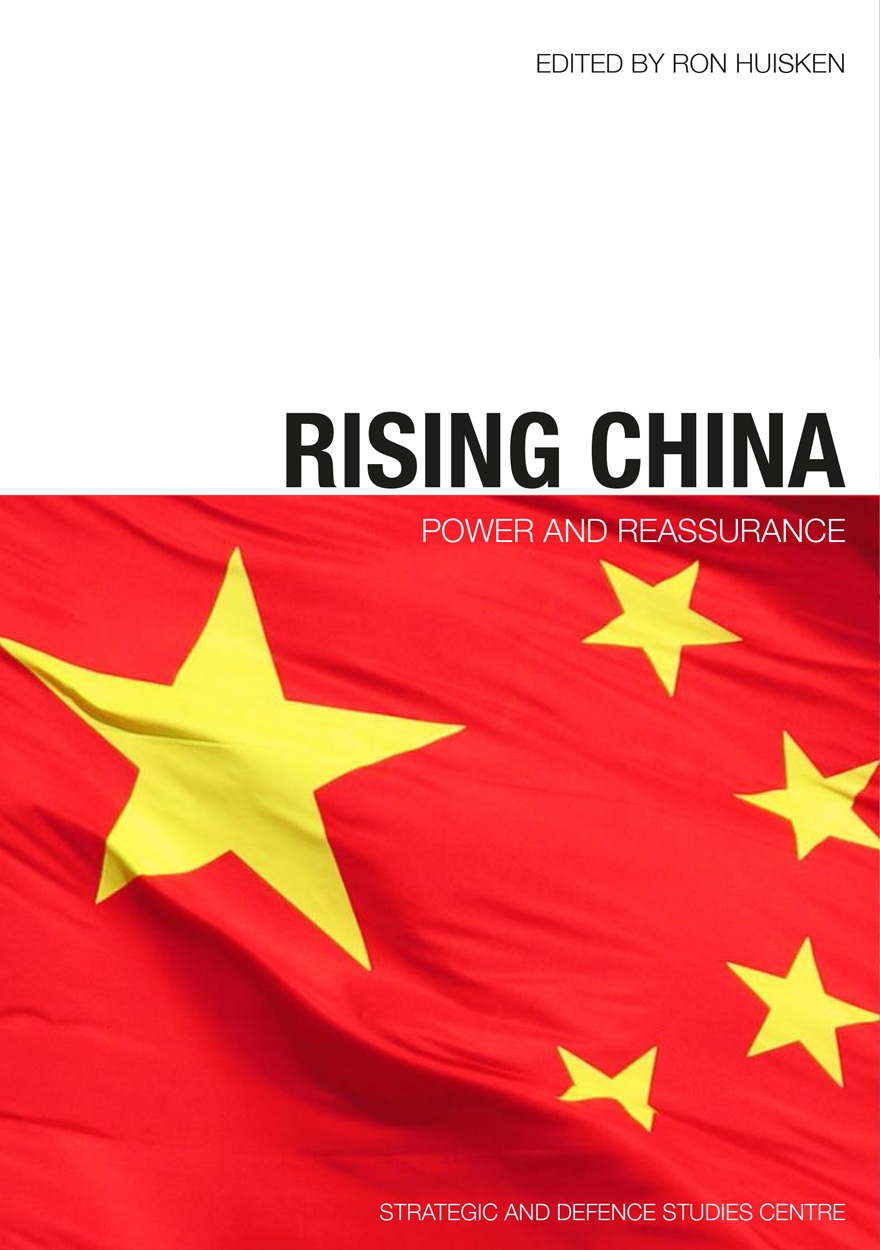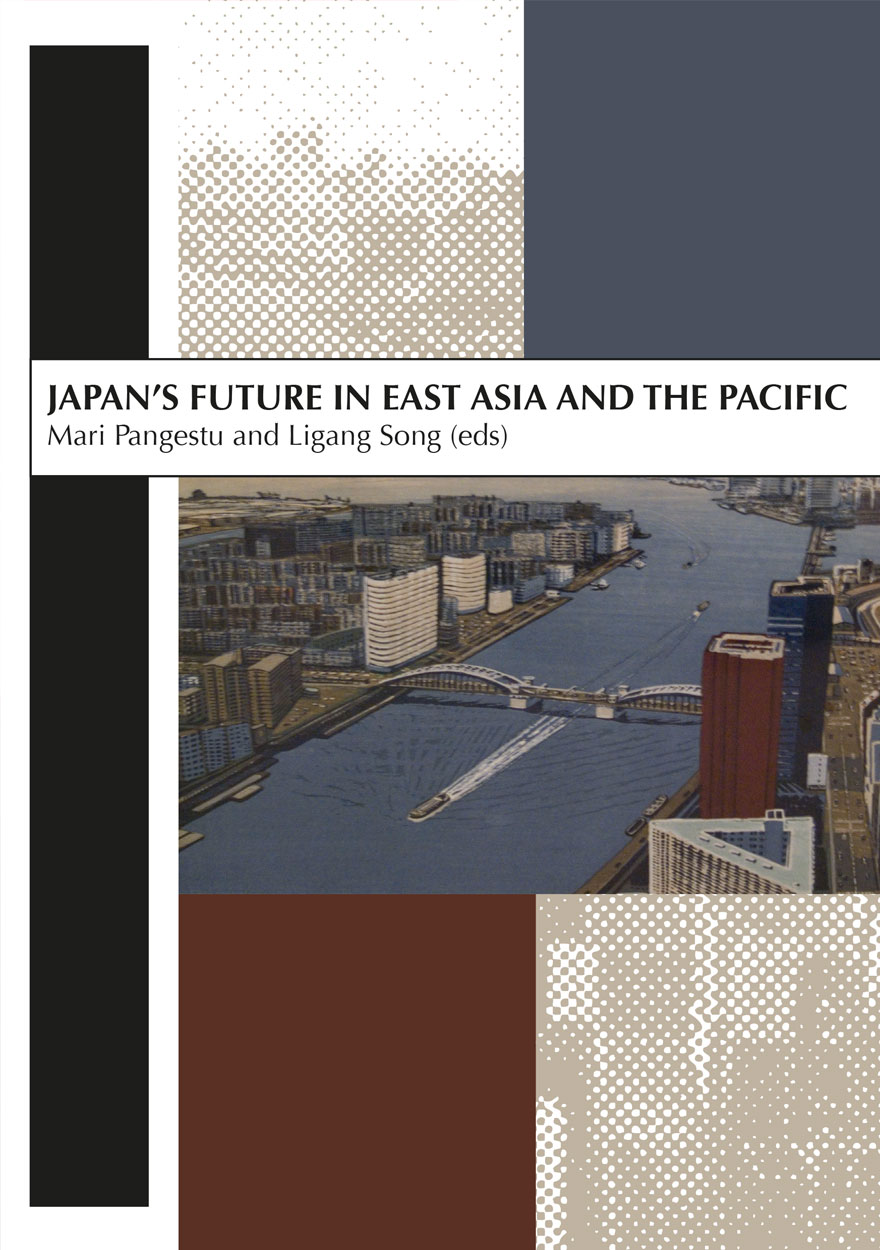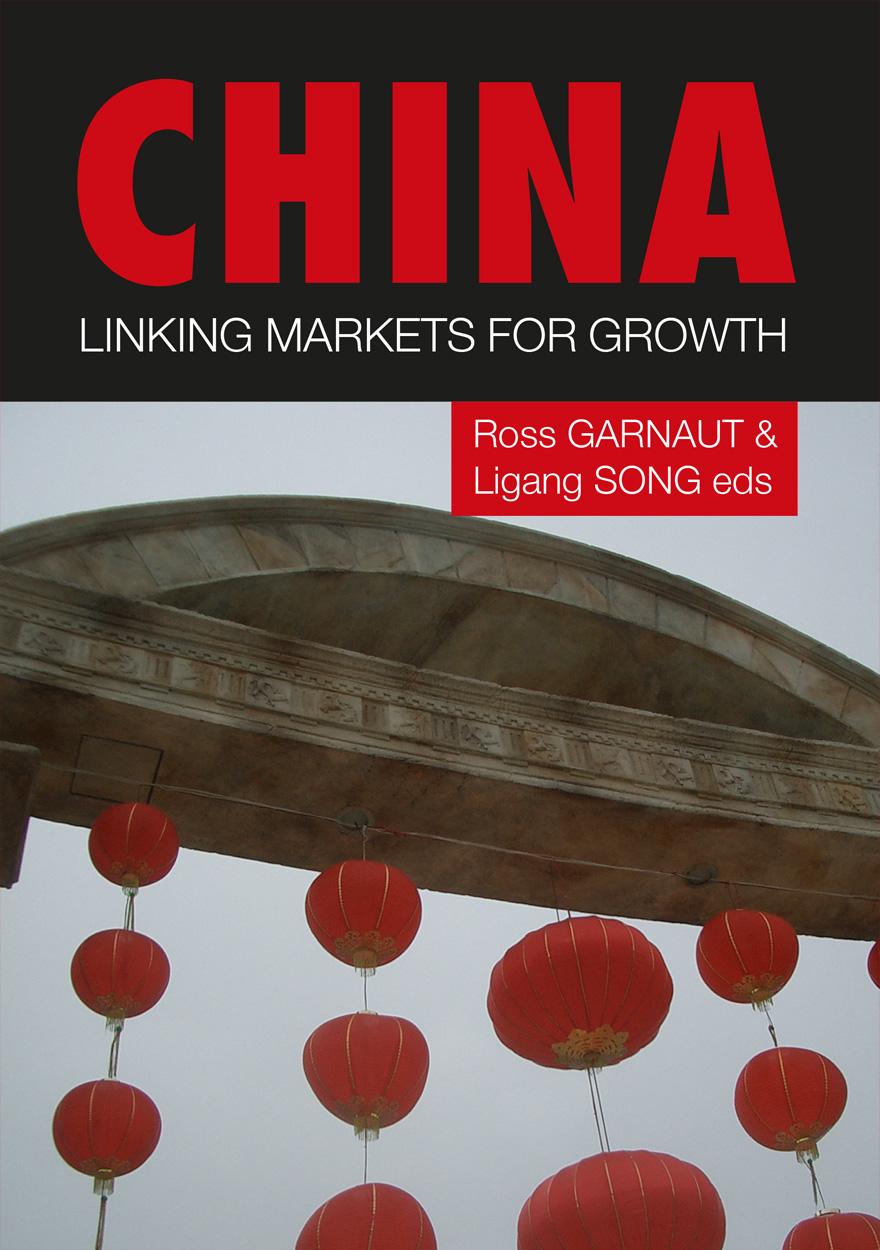Search titles
Displaying results 171 to 180 of 183.

Howard's Long March »
The Strategic Depiction of China in Howard Government Policy, 1996–2006
Authored by: Roy Campbell McDowall
Publication date: March 2009
Australia’s strategic depiction of China has assumed increased importance as it attempts to harmonise economic interests (focusing on China) with security interests (primarily the United States). In this period of strategic transition, how Australia incorporates the rise of China into its existing security commitment under ANZUS has become a delicate issue. This investigation follows the intriguing evolution of the Howard Government’s depictions of China, and reveals a complex and calculated strategy that successfully transformed a potentially volatile conflict of interests into a functional foreign policy.

Rising China »
Power and Reassurance
Edited by: Ron Huisken
Publication date: March 2009
Asia looks and feels very different now compared to the days of the Cold War. The sense that Asia now works differently can be traced to a single source – the re-emergence of China. China was the dominant power in greater Asia for most of recorded history. This historical norm was interrupted from the early 19th century, too far into the past to be recognisable and readily accommodated by the actors in today’s international arena. A powerful China feels new and unfamiliar.
Arriving peacefully at mutually acceptable relationships of power and influence that are very different from those that have prevailed for the past half century will be a demanding process. The world’s track record on challenges of this kind is not terrific. It will call for statesmanship of a consistently high order from all the major players, and building the strongest possible confidence among these players that there are no hidden agendas.

Lak Chang »
A reconstruction of Tai identity in Daikong
Authored by: Yos Santasombat
Publication date: December 2008
The Thai—Yunnan Project is proud to present this English-language version of Professor Yos Santasombat’s fascinating ethnography of the Tai in Daikong, southwestern China. It represents a significant contribution to the ethnographic record of the Tai peoples.
The village of Lak Chang is located close to the edge of the Tai world and is increasingly embraced by Chinese influence. Professor Yos skilfully weaves ethnographic and historical writing to chart the course of Lak Chang’s incorporation into the modern Chinese state. This has been a painful history but what emerges in this account is a sense of Tai cultural identity that is vigorous and adaptive.
“The Tai ethnic category is thus a complex and dynamic construct which takes place within the context of changing power relations and socio-economic conditions where the past is reconstructed to give meaning to the present and hope for the future.”
In his account of the labours, rituals and beliefs of the Tai villagers of Daikong, Professor Yos brings contemporary ethnic identity to their life. Among the patchwork paddyfields and haphazard laneways of Lak Chang we come to a greater understanding of how global and regional processes of modernisation are managed and selectively incorporated by one local community.

Transnational Ties »
Australian Lives in the World
Edited by: Desley Deacon, Penny Russell, Angela Woollacott
Publication date: December 2008
Australian lives are intricately enmeshed with the world, bound by ties of allegiance and affinity, intellect and imagination. In Transnational Ties: Australian Lives in the World, an eclectic mix of scholars—historians, literary critics, and museologists—trace the flow of people that helped shape Australia’s distinctive character and the flow of ideas that connected Australians to a global community of thought. It shows how biography, and the study of life stories, can contribute greatly to our understanding of such patterns of connection and explores how transnationalism can test biography’s limits as an intellectual, professional and commercial practice.

China's Dilemma »
Economic Growth, the Environment and Climate Change
Edited by: Ligang Song, Wing Thye Woo
Publication date: July 2008
China’s Dilemma—Economic Growth, the Environment and Climate Change examines the challenges China will have to confront in order to maintain rapid growth while coping with the global financial turbulence, some rising socially destabilising tensions such as income inequality, an over-exploited environment and the long-term pressures of global warming.
China’s Dilemma discusses key questions that will have an impact on China’s growth path and offers some in-depth analyses as to how China could confront these challenges. The authors address the effect of the global credit crunch and financial shocks on China’s economic growth; China’s contribution to greenhouse gas emissions and emissions reduction schemes; the environmental consequences of foreign direct investment in China; the relationship between air pollution and mortality; the effect of climate change on agricultural output; the coal industry’s compliance with tougher regulations; and the constraints water shortages may impose on China’s economy. It also emphasises the importance of managing the rising demand for energy to moderate oil price increases and placating domestic and international concerns about global warming.
In the thirty years since China started on the path of reform, it has emerged as one of the largest and most dynamic economies in the world. This carries with it the responsibility to balance the requirements of key industries that are driving its development with the need to ensure that its growth is both equitable and sustainable. China’s Dilemma highlights key lessons learned from the past thirty years of reform in order to pave the way for balanced and sustained growth in the future.

Agriculture and Food Security in China »
What Effect WTO Accession and Regional Trade Arrangements?
Edited by: Chunlai Chen, Ron Duncan
Publication date: June 2008
China’s accession to the World Trade Organization (WTO) has had profound consequences for the structure of its economy, and there will many more before the full benefits of an open trading regime will be realised.
Agriculture and Food Security in China explains the background to China’s WTO accession and links accession to reforms beginning as far back as 1979. The book highlights China’s policymakers’ decision to move away from protectionism and gain self-sufficiency, and illustrates how China’s step away from direct participation in the agricultural sector to indirect regulatory involvement and liberalisation could encourage further economic growth.
Yet not all economic growth is cost-free. Agriculture and Food Security in China explores the short-term impacts of WTO accession as well as the mid and long-term implications of greater market involvement at an economy-wide and regional level. Growing divides between coastal and inland regions—and differences in rural and urban growth—will require a better understanding of the consequences of greater market dependency.
Agriculture and Food Security in China adds to the existing knowledge of China’s agricultural growth as well as the impacts and interrelationships between WTO accession and China’s participation in other regional free trade agreements.

Islands of Inquiry »
Colonisation, seafaring and the archaeology of maritime landscapes
Edited by: Geoffrey Clark, Foss Leach, Sue O'Connor
Publication date: June 2008
This collection makes a substantial contribution to several highly topical areas of archaeological inquiry. Many of the papers present new and innovative research into the processes of maritime colonisation, processes that affect archaeological contexts from islands to continents. Others shift focus from process to the archaeology of maritime places from the Bering to the Torres Straits, providing highly detailed discussions of how living by and with the sea is woven into all elements of human life from subsistence to trade and to ritual. Of equal importance are more abstract discussions of islands as natural places refashioned by human occupation, either through the introduction of new organisms or new systems of production and consumption. These transformation stories gain further texture (and variety) through close examinations of some of the more significant consequences of colonisation and migration, particularly the creation of new cultural identities. A final set of papers explores the ways in which the techniques of archaeological science have provided insights into the fauna of islands and the human history of such places. Islands of Inquiry highlights the importance of an archaeologically informed history of landmasses in the oceans and seas of the world.

Japan's Future in East Asia and the Pacific »
Edited by: Mari Pangestu, Ligang Song
Publication date: December 2007
Japan’s Future in East Asia and the Pacific takes a ’big-picture‘ approach to Japan’s economic place in East Asia alongside that of China. It analyses Japan’s successes and experiments in trade policy as well as its failures in macro-economic policy. Japan’s diplomatic and economic integration strategies are also examined for their impact on East Asia and on Australia. The collection assesses China’s growth and dynamism and questions the nature of the competition for economic influence between Japan and China.
Contributors to Japan’s Future in East Asia and the Pacific are all graduates of The Australian National University who are making their mark in the region as scholars and economists on East Asian and Pacific affairs.

History as Policy »
Framing the debate on the future of Australia’s defence policy
Edited by: Ron Huisken, Meredith Thatcher
Publication date: December 2007
The fortieth anniversary of the Strategic and Defence Studies Centre’s founding provided the opportunity to assemble many of Australia’s leading analysts and commentators to review some of the more significant issues that should define Australian defence policy.
In the first 20 years after its establishment, SDSC scholars played a prominent role in shaping the ideas and aspirations that eventually found official expression in the 1987 Defence of Australia White Paper. This policy sustained a coherent balance between strategy, force structure and budgets for well over a decade. In recent years, however, the cumulative effects of the end of the Cold War and watershed events like the East Timor experience; the attacks on New York and Washington, D.C., in September 2001; the Bali bombings in October 2002; and the invasion of Iraq in March 2003 have fractured the former consensus on defence policy. These developments have eroded acceptance of the core judgements underpinning defence policy. This has led to a more tenuous connection between some recent major equipment acquisitions and declared policy.
The unravelling of the consensus on the ‘defence of Australia’ policy means that we must again undertake a balanced, long-term assessment of the nature of Australia’s strategic interests. Only by doing so can we determine the kinds of armed forces that would contribute most effectively to protecting those interests. The papers collected in this volume are not informed by a common view of where Australia should focus its defence policy, but all address themes that should figure prominently in this difficult but essential task.

China: Linking Markets for Growth »
Edited by: Ross Garnaut, Ligang Song
Publication date: August 2007
China’s prosperity is at the core of the emerging Platinum Age of global economic growth. Rapid economic growth has been underpinned by expansion in its domestic markets, and the integration of domestic and international markets in goods, services, capital, labour and foreign exchange. Global commodity prices have reached historic highs, while China’s capital outflows have helped to hold down interest rates worldwide. Linking markets, both domestic and international, has been key to China’s success.
In sustaining its strong economic growth, China has become one of the world’s most voracious consumers of energy. The challenge now facing the government and people of China is in achieving cooperation with the international community to avert the costs–both economic and environmental–of accelerating energy consumption.
China–Linking Markets for Growth gathers together leading scholars on China’s economic success and its effect on the world economy into the next few decades.



